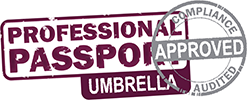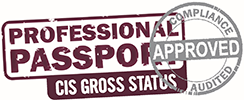


Being self-employed can be difficult to find the time to focus on training and continuing professional development. Whilst you may think your time is better spent doing other things, it is important you keep developing your skills and expertise to stay relevant in what is a competitive market.
We have put together a few ideas you may want to use to make sure you are getting the most out of your training and development opportunities.
The opportunity to work for yourself is exciting but can also be daunting. Whilst being your own boss might sound like a great idea, you need to remember the responsibility that comes with it. We have gathered a few points that you may want to consider before taking the leap to becoming self-employed.
Have you got savings to help you get by for the first few months? Often, starting a business is a slow and difficult feat so having some financial support to pay for basics such as rent is handy. There is also going to be times when you come across extra expenses that you haven’t budgeted for, so having money behind you is essential.
You want to keep your personal finances separate from your business finances, which is a lot more difficult than it sounds.
You may want to put away a percentage of every invoice into a separate account and use this for tax, so it does not creep up and surprise you at the end of the year. Another tip is to do your accounts monthly, rather than leaving them until the end of the year. This way the workload is much more manageable.
The other option is to hire an accountant. Not everyone who is self-employed needs one, and it is an extra cost that needs to be factored in, however in the long run, hiring an accountant can save you time and stress.
Going self-employed means you need to sort your own insurance cover. Some policies you need to have as a legal requirement, whilst others are worth having to reduce the risk you face.
Employer’s liability insurance is a legal requirement if your business employs one or more other people. This provides cover to pay compensation and legal fees if an employee sues you for illness or injury caused at work. If you do not have this insurance, you can face fines of up to £2,500 a day.
Other insurances worth looking into to include public liability insurance and professional indemnity insurance. Whilst these may not be a legal requirement, an increasing number of businesses refuse to work with those who do not hold certain insurances.
Once you have decided self-employment is for you, you need to register with HMRC. You can do this online as soon as you have started your business. Remember, you need to be registered with HMRC before the 5th October in your business’ second tax year, or you could be facing a hefty fine.
Here, you can also apply for the CIS (Construction Industry Scheme). All contractors who work in the construction industry need to register with this scheme. Upon registration, you will receive a Unique Tax Reference (UTR) number which you can give to your pay provider and it will allow them to verify your details with HMRC.
Another factor you need to keep in mind is that getting loans, including a mortgage, can become more difficult when you become self-employed. You no longer have a guaranteed income which can put some lenders off as the chances of them getting their money back is decreased. This is something you need to consider if you are looking at buying a home in the near future.
A solution you may consider is working through an umbrella company. Apex provide a CIS pay model that is flexible enough for you to work for yourself whilst providing some support, such as sorting your pay out. For more information, visit the CIS section of our website to see how we can help you.
Read MoreBoth employees and employers are facing unprecedented times during the coronavirus pandemic. Many businesses have closed or are getting used to working remotely. This has resulted in changes occurring in the job searching and hiring process, which has an impact on people looking for work.
Here are a few tips on what to expect when looking for a new job during the pandemic:
It is become impossible to attend interviews or career events in person due to social distancing rules being present. However, things are still going on, just online instead! Career fairs have been moved online to providing a virtual experience for people searching for jobs.
Many employers are still recruiting and have found ways around face to face interviews. Telephone and video calls are a good alternative to meet and chat with potential employers without putting anyone at risk.
It is also useful to have a virtual presence on the likes of social media and job sites. Sharing or commenting on articles or discussion groups makes sure that you know what is going on and shows you have an interest in the subject.
Your job sector may be struggling at the minute due to new rules and guidelines meaning there are less jobs around. This is where you may want to consider moving to a different area of work. Whilst some industries are suffering, others are seeing an increase in job creation and are looking to employ people as soon as possible.
Supermarkets, warehouses, and care homes are all sectors that are currently in need of workers.
Remember, this does not have to be a permanent career change but just a temporary solution to keep you earning money and develop a new skill set during the pandemic.
Use the time you have to update your CV. Make sure all your latest qualifications and experience is included. You may also want to take an online course, volunteer, or learn a new skill whilst you have more time than usual to spare. Not only will this keep you busy but may introduce you to a new interest that could lead to a different career path.
Whilst it might be frustrating applying to jobs to never hear back from them, you need to carry on. There are less jobs available and more people applying, meaning the application process may take longer than usual, so be patient. Even if you do not hear back, your information will be on the employer’s system should another job turn up that would suit you.
Remember, the more jobs you apply for, the greater your chances of landing one.
Read MoreAre you currently working in the construction industry? If so, it may be worth looking into the Construction Industry Scheme (CIS).
CIS is a government run scheme where contractors deduct money from a subcontractor’s pay and pass it to HMRC as an advance payment towards the subcontractor’s tax and National Insurance Contributions.
Depending on certain criteria, you’ll pay either 20% or 30% tax. So, what do you need to do to register for the Construction Industry Scheme?
A CIS payroll specialists, Apex can help you to become a CIS registered worker.
Read MoreSo, you’ve taken the initiative to become self-employed and, in some ways, taken your future into your own hands. You’re in control of your work. So how do you ensure that you’re still developing your career and keeping work flowing in? Here’s a few useful hints and tips…
Once you have perfected your current trade, why not think about learning a new skill? This will not only develop your business as you have a bigger skill pool available, but it shows that you’re motivated and eager to progress and learn more.
You may want to consider signing up for a course or a local group in something you’re interested in. Even if you choose a new skill that becomes a hobby rather than work related, you’re meeting new people and widening your social circle. You never know who may need your services.
Set some time aside to read up on your industry. It is important you stay up to date with what’s going on and the latest trends so you can provide the best service to your clients.
Browse the latest news article, blog posts and websites relating to your job area and see if there is anything interesting or relevant to you. Putting the extra time in shows you’re committed, and you never know what you might learn in the process.
Developing your communication skills is key to developing your business. Many businesses rely on word of mouth, however there are other options you can explore as well. Create an online presence for your business, whether that be on social media or via a website. Have clear links to how people can contact you such as an email address or telephone number.
Make it clear what you can offer your customers. The more open and transparent you are, the more people will trust and want to use you.
Having a strong network of contacts is a highly valuable tool for building and maintaining work offers. Networking is a great way of doing this, however it can be off putting for some people. Focus on being friendly and approachable and less on trying to impress others.
Use social media to widen your contacts. People leaving reviews or talking about your service encourages other people to look into you and what you’re about. A like, comment or share can go a long way these days.
It is also worth putting the work into maintaining relationships with clients who you have worked with previously. You never know when the opportunity may occur where they want to work with you again, or the opportunities this may lead to.
Read MoreYour CV is your initial introduction to a potential employer so it’s pretty important that you get it right! You need to draw their attention from all the other applications and highlight why you’re best suited for the job.
We’ll walk you through what you need to include in your CV and how to make it stand out from the rest.
For more information visit https://www.cv-library.co.uk/career-advice/cv/how-to-write-a-cv-tips/
Read MoreFirst impressions count! An interviewer will make a judgement within the first few seconds of an interview, so it’s important to make sure it’s a good impression.
Part of this is how you dress. Think about how you want to be seen by the interviewer. You want to portray a professional image, therefore dressing professionally and appearing well groomed will show you are a confident person who takes pride in themselves and can be trusted to represent the company.
Similarly, you want to appear confident through your actions. Arrive early, smile and greet the interviewer appropriately. There’s no point looking the part if you turn up late and flustered.
Part of job interview preparation is researching your potential employer. Google the employer and check out their website and any social media sites they may have. You can use the information you learn from this to demonstrate your knowledge in the interview and impress the interviewer, as well as to build any questions you may want to ask.
An interview is the perfect time for you to show the employer why you’re the best candidate for the job.
Analyse the job description and pick out skills you have which would help you carry out the tasks stated. You can use previous experiences, qualifications you have gained or examples to demonstrate how you would be successful in the role.
Use the ‘STAR’ method and tailor your answers to suit the job you’re applying for:
Your body language says a lot about you, so you need to make sure you’re aware of how you’re presenting yourself.
Using your hands to talk can make you appear more animated and help you communicate, however you don’t want to go overboard.
If you’re a fidgeter, you need to make a conscious effort to avoid fiddling with things, such as pens or jewellery.
You want to look professional and confident in yourself, so avoid slouching in your chair or folding your arms. Try smiling and maintain eye contact with your interviewer.
Nerves before an interview are common and normal. If you have done all the correct job interview preparation, you should be feeling confident in your knowledge, however being able to control your nerves during the interview is key.
You want to come across as calm and confident, so don’t rush to answer any questions. Listen carefully to what the interviewer says, think about your answers and draw on what you have prepared.
You should have come up with a few questions from your pre-interview preparation, so now is the time to ask away.
Asking intelligent questions shows the interviewer that you have taken an interest in the company and are serious about the position. Asking questions about progression, the future and what can be expected shows you are a forward thinker and want to develop and grow the company.
Be careful about the information you share with the interviewer. Of course you will have to discuss a lot of personal information, such as your previous jobs and reasons for leaving, however if you’ve had any issues or bad experiences, you don’t want to mention these. This will make you look unprofessional and personal and may cause the interviewer to consider your attitude to your work.
Similarly, if you have any personal or private issues in your life, you want to avoid talking about these as you could run the risk of looking unprofessional or cause the interviewer to worry you may be distracted in work by your private life.
At the end of the interview, enquire what the next steps are or when you can expect to hear back on the outcome of your interview. Once everything is done, thank the interviewer for their time and tell them that you look forward to hearing from them.
Read More

